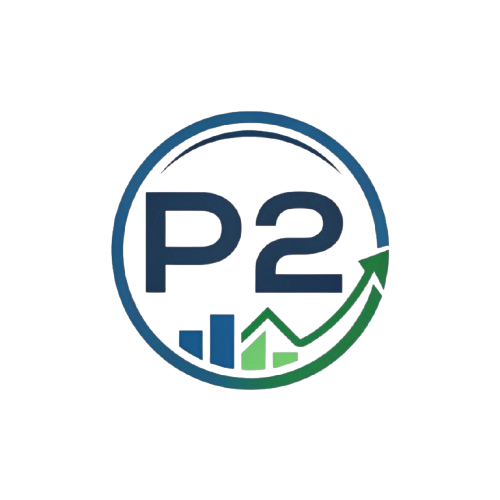Are you tired of the daily grind and dreaming of financial independence? You’re not alone. The FIRE (Financial Independence, Retire Early) movement is growing fast. It encourages people to take charge of their finances and retire early1.
In this guide, we’ll explore early retirement. We’ll look at strategies, mindset, and steps to achieve financial freedom. This article is for everyone, whether you’re just starting or already on your way2.
Key Takeaways
- Understand the concept of early retirement and its benefits
- Assess your current financial situation and identify areas for improvement
- Set clear financial goals and create a retirement vision
- Develop a robust savings plan and explore investment strategies
- Manage your budget, debt, and retirement accounts for long-term success
Understanding Early Retirement and Its Benefits
Early retirement means leaving work before age 66-67. It’s now more popular, with many retiring at 62 or younger3. Starting Social Security at 62 means getting benefits sooner but with a smaller amount3.
Retiring early can mean enjoying life while you’re healthy3. Downsizing to a smaller home can save money3. Moving to a retirement community can also help with health costs3.
What is Early Retirement?
Early retirement is leaving work before 62 or younger4. Men in the U.S. retire at 64, women at 624. It lets people enjoy hobbies but has financial and practical challenges.
Advantages of Retiring Early
Improved Health and Wellbeing: Retiring at 60 can be good for mental health5. But, it can also lead to health issues like heart disease5.
Maximizing Leisure Time: Early retirement means more time for fun and travel3.
Common Misconceptions
Many think you need millions to retire early5. But, you can access 401(k) funds from 55 to 59½ if you retire from your employer4. Some think it’s a permanent vacation, but it’s not always easy to get to retirement funds and Social Security3.

Early retirement has many benefits but needs careful planning. Knowing the pros and cons helps decide if it’s right for you.
Assessing Your Current Financial Situation
Looking closely at your finances is the first step to early retirement. You need to check your income, expenses, and net worth. This helps you understand your financial situation and find ways to get better6.
Evaluating Your Income and Expenses
Start by looking at where your money comes from. This includes pensions, savings, IRAs, 401(k)s, and investments6. Find out how much you make each month and year. Then, track your spending to see where it goes6.
This will show you where you can cut back. You can then save more for retirement.
Determining Your Net Worth
Figuring out your net worth shows how healthy your finances are. It’s the difference between what you own (like savings and property) and what you owe (like debts)6. Watching your net worth grow helps you see your progress towards financial freedom.
Identifying Areas for Improvement
After checking your income, spending, and net worth, look for ways to get better. This might mean paying off debt, saving more, or improving your investments6. Fixing these areas will make your financial base stronger. This sets you up for a smooth early retirement.

Getting to early retirement starts with knowing your finances well. By understanding your income, spending, and net worth, you can make a plan that fits your goals. This plan will help you reach financial freedom6.
Setting Clear Financial Goals
To retire early, you need a solid plan and a clear vision for your money. Start by setting SMART financial goals. These should cover both short-term and long-term plans, helping you create a detailed retirement strategy7.
Short-Term vs. Long-Term Goals
Short-term goals might include making a budget, paying off debt, and saving for emergencies. Aim to save three to six months’ worth of living expenses7. To tackle debt, use methods like the debt avalanche or debt snowball7.
Mid-term goals might be about getting life insurance and disability income insurance. These protect your family and financial future7.
Creating a Retirement Vision
Thinking about your retirement lifestyle is key. Consider what you want to do, where you want to travel, and your health needs. Experts say you’ll need 30-40 years’ worth of living expenses if you retire at 508.
Look into Social Security, catch-up contributions, and other income sources. This will help you plan a full early retirement8.
Establishing Milestones
Reaching your goals means steady progress and regular checks. Set milestones like paying off student loans and saving for emergencies7. Also, aim to save a certain percentage of your income for retirement7.
Keep reviewing and adjusting your plan to stay on track. This will help you reach your early retirement dreams9.

“The secret of getting ahead is getting started. The secret of getting started is breaking your complex overwhelming tasks into small manageable tasks, and then starting on the first one.”– Mark Twain
Creating a Robust Savings Plan
Creating a solid savings plan is key to early retirement. The FIRE method says save at least 30 times your yearly expenses for financial freedom10. This goal might seem hard, but with a smart plan, you can save more and retire early with peace of mind.
How Much Should You Save?
The savings needed for early retirement varies based on your lifestyle and goals. The “rule of 25” suggests saving 25 times your yearly spending before retirement11. The 4% rule also helps, allowing you to withdraw 4% of your savings each year, adjusted for inflation, to last about 30 years11.
Exploring High-Yield Savings Accounts
Consider using high-yield savings accounts to grow your retirement funds. These accounts offer higher interest rates than regular savings accounts. This means your money can grow faster, adding to your passive income10.
Automating Your Savings
Automating your savings helps you stick to your retirement goals. Set up automatic transfers from your checking to savings and investments. This way, you save without the urge to spend more10. Also, make the most of employer-sponsored plans like 401(k)s and IRAs for tax benefits and matching funds11.
“The key to achieving financial independence and early retirement is to save aggressively, invest wisely, and live below your means.”
With a strong savings plan, you’re on the path to a secure financial future. Early retirement brings freedom and flexibility1011.
Investment Strategies for Early Retirement
To retire early, you need a solid investment plan. This plan should help you grow your wealth and earn passive income. It’s important to learn about the stock market, explore real estate, and diversify your investments12.
Stock Market Basics
The stock market is a great way to grow your money. Putting as much as you can into a 401(k) or traditional IRA can lower your taxes. This lets your investments grow without taxes until you retire12.
Roth IRAs offer tax-free withdrawals in retirement. This gives you more control over your taxes12. If you’re 50 or older, you can make extra contributions. This can really boost your savings before you retire12.
Real Estate Investment
Real estate can be a good choice for early retirees. It can provide passive income and grow in value. There are many ways to invest in real estate, like rental properties or REITs. It’s important to do your research and make informed decisions.
Diversifying Your Portfolio
Diversifying your investments is key to managing risk and getting better returns. Spread your money across different types of investments. This includes stocks, bonds, real estate, and other assets12.
Index funds are a smart way to diversify at a lower cost. They help you get consistent returns over time12.
Compound interest, saving regularly, and rebalancing your portfolio can help you reach your retirement goals12. Automating your investments and using dollar-cost averaging can keep you disciplined. This reduces the effect of market ups and downs12. Getting advice from a professional can also help tailor your strategy to your needs12.
“The key to early retirement is to invest wisely, diversify your portfolio, and maintain a disciplined savings plan.”

Early retirement needs a careful and disciplined investment strategy. By using the stock market, real estate, and diversification, you can reach your financial goals13.
Budgeting for Early Retirement
Getting to early retirement needs careful budgeting and planning. It’s all about living smart and saving enough. With the right budgeting, you can enjoy your retirement years smoothly.
Living Below Your Means
Living frugally is key to early retirement14. Sadly, one in four Americans has no retirement savings. By cutting costs and focusing on needs over wants, you can save more and retire sooner14.
Creating a Sustainable Spending Plan
Having a detailed spending plan is essential15. Most retirees spend 70-80% of what they did before retiring. Your plan should cover both must-haves and nice-to-haves for a happy retirement15.
Tools and Apps for Budgeting
Today, many tools and apps can help manage your money. They track expenses and offer budgeting advice. These tools make budgeting easier and help you stay financially healthy, even in retirement.

For a successful early retirement, balance is crucial. Manage your spending well, plan your budget wisely, and use modern budgeting tools. This way, you can confidently start your retirement and enjoy the freedom you’ve earned.
“Retirement is not about age; it’s about money. You can retire at any age if you have enough money.” – Unknown
Understanding Retirement Accounts
Exploring retirement accounts is key for early retirement planning. We’ll look at 401(k)s, IRAs, and Health Savings Accounts (HSAs). These are vital for a strong retirement savings plan.
401(k) and IRA Basics
The IRS rule of 55 lets you start taking 401(k) distributions without penalty if you’re 55 or older. Public safety workers can access their plans penalty-free at 5016. But, you can only withdraw from the 401(k) you were in when you left your job without penalty until 59 1/216.
IRAs don’t follow the rule of 55. Once you roll over 401(k) money to an IRA, you can’t withdraw it penalty-free16.
Roth IRA Benefits
Roth IRAs offer a tax advantage for early retirees. Contributions to a Roth 401(k) can be tax-free in retirement, but it depends on your situation16. Roth IRA contributions can be withdrawn tax-free and penalty-free for emergencies, avoiding the 10% penalty17.
Health Savings Accounts (HSA)
HSAs are great for early retirees. They save on healthcare costs in retirement. Contributions are tax-deductible, and withdrawals for medical expenses are tax-free.
Remember, this info is general. Always review your investment strategies with a financial advisor to fit your needs16.
| Retirement Account | Key Benefits | Considerations |
|---|---|---|
| 401(k) |
|
|
| Roth IRA |
|
|
| HSA |
|
|
Knowing about these accounts helps you plan your retirement savings and investment strategies for early retirement161718.
Health Care Considerations
Early retirement brings its own set of challenges, especially when it comes to healthcare. Gen Z plans to retire by age 5919. They need to think about medical costs, which can be high.
Planning for Medical Expenses
Many Americans, about 100 million, have health care debt worth $195 billion19. Every year, half a million people file for bankruptcy due to medical bills19. It’s key for early retirees to plan for these costs.
Health Insurance Options Before Medicare
Before Medicare kicks in at 65, early retirees must look for other health insurance. Medicaid is a state-run program for those with lower incomes19. COBRA coverage can last up to 18 months20, helping until Medicare starts. Companies like Starbucks and Amazon offer health insurance to part-timers, which is good for early retirees19.
The Importance of Long-Term Care Insurance
With fewer employer health plans due to high costs19, early retirees should think about long-term care insurance. It helps cover the cost of long-term care, keeping finances safe in retirement.
Understanding healthcare options and costs is vital for early retirement. By exploring available resources and securing good coverage, early retirees can enjoy their retirement with confidence.
Navigating Debt Before Retirement
Planning for early retirement means tackling debt first. It’s key to pay off what you owe and keep your credit score up. This way, you can enjoy a stress-free retirement21.
Prioritizing Debt Repayment
Start by paying off debts with high interest, like credit card balances22. The debt avalanche method focuses on the highest interest rate first. This saves you money and speeds up debt repayment21. Or, try the debt snowball method, where you tackle the smallest debts first. This builds momentum and keeps you motivated21.
Strategies to Reduce Debt
Debt consolidation can simplify your payments and lower interest rates22. Use balance transfer credit cards for a low-interest period to focus on principal22. You might also consider personal loans or home equity loans for better rates22.
How to Maintain a Healthy Credit Score
A good credit score is vital for better borrowing terms in retirement21. Pay bills on time, keep credit card balances low, and check your credit report often21. Celebrate your debt victories to stay motivated and on track21.
By focusing on debt, using smart strategies, and keeping your credit score high, you’ll retire with confidence and freedom22.
Transitioning to Retirement Life
Retiring early is a big change, not just about money23. With people living longer, retirement has changed a lot23. Now, retirees must find new ways to be happy and find meaning after work.
Adjusting to a New Routine
Going from a busy workday to retirement can be thrilling and scary23. Early retirees need to make a new routine that makes them feel good23. This time, called the “leaving” phase, is when they try new things and find a balance between work and life.
Finding Purpose and Fulfillment
Retirement is a chance to try new hobbies, volunteer, or work part-time24. Thinking about who you are outside of work can make retirement fulfilling24. Setting goals and taking care of your health and mind can give you a sense of purpose24.
Staying Engaged and Active
Keeping active and connected to the community is key for early retirees23. Many suggest trying new things before retiring to see what they like23. By staying active and engaged, retirees can enjoy their retirement fully2324.
FAQ
What is early retirement?
What are the benefits of early retirement?
What are common misconceptions about early retirement?
How do I assess my current financial situation?
How do I set clear financial goals for early retirement?
How much should I save for early retirement?
What investment strategies should I consider for early retirement?
How do I create a budget for early retirement?
What retirement accounts should I consider for early retirement?
How do I plan for healthcare in early retirement?
How do I manage debt before retiring early?
How do I transition to retirement life?
Source Links
- Early Retirement Planning Books | Listen on Audible – https://www.audible.com/topic/audiobooks-early-retirement-planning
- Early Retirement Books – https://www.financialmentor.com/free-stuff/best-books/early-retirement-books
- Why Should You Retire Early? | Benefits of Early Retirement – https://www.actsretirement.org/resources-advice/retirement-life/what-to-do-in-retirement/should-i-retire-early/
- What is considered early retirement age? – https://www.empower.com/the-currency/life/what-is-considered-the-early-retirement-age
- Early Retirement: The Pros and (Mostly) Cons – https://www.investopedia.com/articles/personal-finance/073114/pros-and-mostly-cons-early-retirement.asp
- A Guide to Retirement Planning: First Steps of Making a Financial Plan – https://www.actsretirement.org/resources-advice/retirement-life/how-to-create-a-financial-plan-for-retirement/
- How to Set Financial Goals for Your Future – https://www.investopedia.com/articles/personal-finance/100516/setting-financial-goals/
- 7 Tips for Pursuing Early Retirement | Gate City Investment Services – https://www.gatecity.bank/investment-services/resources/articles/steps-to-pursue-early-retirement/
- How to Set Financial Goals | U.S. Bank – https://www.usbank.com/wealth-management/financial-perspectives/financial-planning/how-to-set-financial-goals.html
- Can You Afford to Retire Early? – https://www.schwab.com/learn/story/can-you-afford-to-retire-early
- Early Retirement: A Step-By-Step Guide And Calculator – NerdWallet – https://www.nerdwallet.com/article/investing/early-retirement
- 10 Early Retirement Strategies for Success | Mutual of Omaha – https://www.mutualofomaha.com/advice/be-ready-for-retirement/escaping-the-9-5-before-50-10-investment-strategies-for-early-retirement
- How to Retire Early in Six Steps – https://www.kiplinger.com/retirement/how-to-retire-early
- Budgeting for the 4 Phases of Retirement – https://www.investopedia.com/articles/personal-finance/110315/4-phases-retirement-and-how-budget-them.asp
- How to Create a Retirement Budget That Works for You | Guardian – https://www.guardianlife.com/retirement/budgeting
- Retiring Early? 5 Key Points about the Rule of 55 – https://www.schwab.com/learn/story/retiring-early-5-key-points-about-rule-55
- What’s the Early Retirement Provision in 401(k) Plans? | Archer – https://archerim.com/whats-the-early-retirement-provision-in-401k-plans/
- Are you ready to retire early? – https://www.ml.com/articles/surprising-thing-about-retirement-today.html
- 8 health insurance options for early retirees – https://www.empower.com/the-currency/life/health-insurance-early-retirees
- 9 Health Care Options For Early Retirees | Bankrate – https://www.bankrate.com/retirement/early-retirement-health-care/
- 5 Tips for Managing Debt in Retirement – Bankers Life Blog – https://www.bankerslife.com/insights/personal-finance/5-tips-for-managing-debt-in-retirement/
- Paying Off Debt in Retirement: 10 Strategies to Help Pay Off Debt – https://www.incharge.org/debt-relief/paying-debt-after-retirement/
- A Psychological and Emotional Journey – UW Retirement Association – https://retirees.uw.edu/resources/retirement-transitions/the-retirement-process-a-psychological-and-emotional-journey/
- Beyond Finances: How to Successfully Transition into Retirement – https://www.ncoa.org/article/retiring-soon-how-to-ensure-a-successful-transition/
